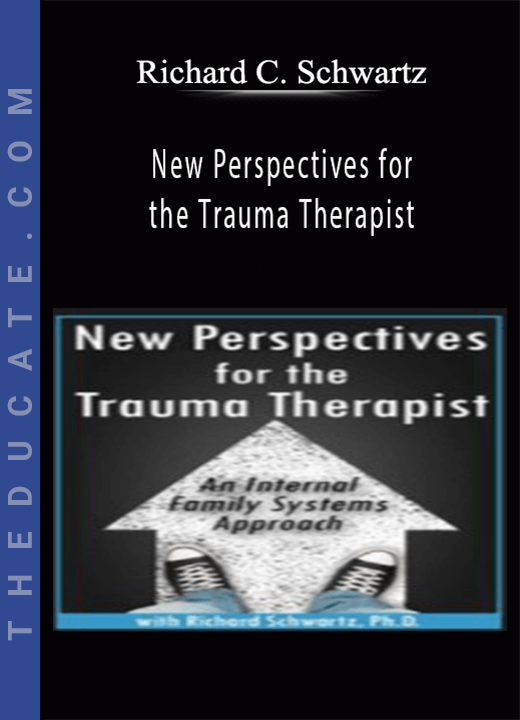Description
Dr. Janene Donarski – 2-Day: Anxiety Certification Course
- Faculty:
- Dr. Janene Donarski
- Duration:
- 13 Hours
- Format:
- Audio and Video
- Copyright:
- Jun 17, 2019
Description
Advances in neuroscience have provided a roadmap for the brain that shows us the key to working with anxious minds. But knowing how to interpret the complex map neuroscience provides has left many clinicians wondering … How do I unlock the complicated inner works of the brain to guide my client sessions?
In this new, comprehensive certification training program recording, you’ll see how neuroscience can inform why, how and what techniques can help your clients stop the symptoms of anxiety – even tough to treat panic attacks, worry, rumination, nausea, and pounding hearts.
Now you can watch Janene Donarski, Ph.D., LP, LMSW, CCATP, for a comprehensive step-by-step clinical training on how you can revolutionize your anxiety treatment approach with the power of neuroplasticity.
More than just the neurobiological “whats and whys”, you’ll also learn the “hows” of actual treatment – so you’ll know exactly how to empower your clients with strategies to resist anxiety-igniting cognitions.
You’ll leave this program recording confident in your ability and be fully prepared to integrate brain-based strategies that motivate lasting change for calming the mind – even in your most anxious, worried, or obsessive clients.
Handouts
| Manual – Anxiety Certification Course (10.5 MB) | 174 Pages | Available after Purchase |
Outline
Using Neuroscience in the Treatment of Anxiety
- Positives:
- Causes and treatments known
- Can explain the neurological symptoms
- Science provides evidence, authority
- De-stigmatizes disorders
- Clinician concerns:
- You don’t have to be a neuroscientist
- Oversimplification is inevitable
- Finding the right level of explanation is essential
Enhancing Engagement in Treatment
- Don’t neglect the therapeutic relationship
- Focus on personalized goals
- Address the challenges of anxious clients
- Remember that strategies are effortful
- Guide the process using client’s goals
- Maintain motivation
Neuroplasticity
- Defined in everyday language
- Neurologically informed therapy goal
- ”Change the brain” in desired ways
- Make the brain more resistant to anxiety
- Create a new self
- Re-consolidation: The modification of emotional memories
Neuropsychologically Informed CBT
- Strategies can be used to effectively “rewire” the brain
- Long history of evidence supporting efficacy
- Skills-based approach
- Strong focus on the present
- Psychoeducation is essential
Identify the Two Neural Pathways to Anxiety
- Amygdala – bottom-up triggering of emotion, physicality of anxiety
- Cortex – top-down emotion generation based in cognition
- How to explain the pathways to clients
- How anxiety is initiated in each pathway
- The pathways influence each other
Client Friendly Explanations
- Use illustrations to create concrete understanding
- Fight/flight/freeze responses
- The “language of the amygdala”
- Anxiety and the cortex
- Help clients recognize the two pathways
Neuroplasticity in the Amygdala Essential for all Anxiety Disorders, PTSD, OCD, Depression
- Sleep and the amygdala
- The influence of exercise
- Breathing techniques to reduce activation
- Relaxation, meditation, and yoga to modify responses
- Exposure as opportunities for the amygdala to learn
- Combating avoidance
- Indications that the amygdala can learn new responses
- Push through anxiety to change the amygdala
Neuroplasticity in the Cortex Essential for GAD, SAD, OCD, PTSD, Depression
- ”Survival of the busiest” principle
- Strengthen or weaken specific circuitry
- The healthy (adaptive) use of worry in the cortex
- ”You can’t erase: You must replace”
- Recognize and modify the impact of uncertainty
- Training correct uses of distraction
- Left hemisphere techniques
- Cognitive defusion
- Coping thoughts
- Fighting anticipation
- Right hemisphere techniques
- Imagery
- Music
- Mindfulness and anxiety resistances
Neuroplasticity and Medications for Anxiety Disorders, OCD, PTSD, Depression
- Medication’s effects in the rewiring process
- The myth of the chemical imbalance
- The danger of sedating the brain with benzodiazepines
- Promote neuroplasticity with SSRIs, SNRIs
- The effectiveness of CBT and meds
Moving Beyond Diagnostic Categories to Focus on Anxiety Pathways
- Address anxiety as a component of many diagnoses
- Depression, substance abuse, etc.
- Amygdala and cortex-based techniques that can help in other disorders
- Target brain-based symptoms rather than disorders
- Worry, obsessions, rumination respond to similar cortex-based techniques
- Panic, phobic responses, compulsions respond to amygdala-based techniques
Research, Risks and Limitations
Faculty

Dr. Janene Donarski, PH.D., L.P., LMSW, CCATPRelated seminars and products: 4
FTDC
Janene M. Donarski, PhD, LP, LMSW, CCATP, is a fully licensed clinical psychologist and licensed master social worker who works in counseling therapy as well as psychological testing for mental health issues. Dr. Donarski specializes in neuropsychological assessment of children, adolescents, adults and geriatric populations including head injury, organic issues, emotional and complex behavior disorders.
Dr. Donarski works extensively with anxiety issues including panic, hypervigilance and PTSD. She trains others in techniques of relaxation, reduction of fear, and exposure therapies to reduce triggers and symptoms in daily life. She assists in testing within the academic areas including ADHD, learning disabilities and autism for IEPs and/or 504 plans/behavior plans. Dr. Donarski works with all populations in counseling/therapy, including individual, marital/ couple, family, LGBTQ, and group counseling.
She is a certified EMDR Level II counselor, as well as a certified hypnotherapist and practitioner for Neuro-Linguistic Programming and Time Line Therapy®. Dr. Donarski is also experienced in working with victims of violence, foster care/adoption issues, sexual issues, as well as those who are seeking sex offender treatment. She often works with attorneys as a forensic psychologist/expert witness for legal cases involving custody, guardianship, social security benefits, and criminal cases.
Dr. Donarski has spoken on a variety of mental health issues, including somatic ailments, behavioral disorders and mental health concerns in the geriatric population.
Speaker Disclosures:
Financial: Janene Donarski has an employment relationship with Family Therapy & Development Centers, Inc. She receives a speaking honorarium from PESI, Inc.
Non-financial: Janene Donarski is a member of the American Psychological Association; Michigan Psychological Association; and National Association of Social Workers.







Reviews
There are no reviews yet.